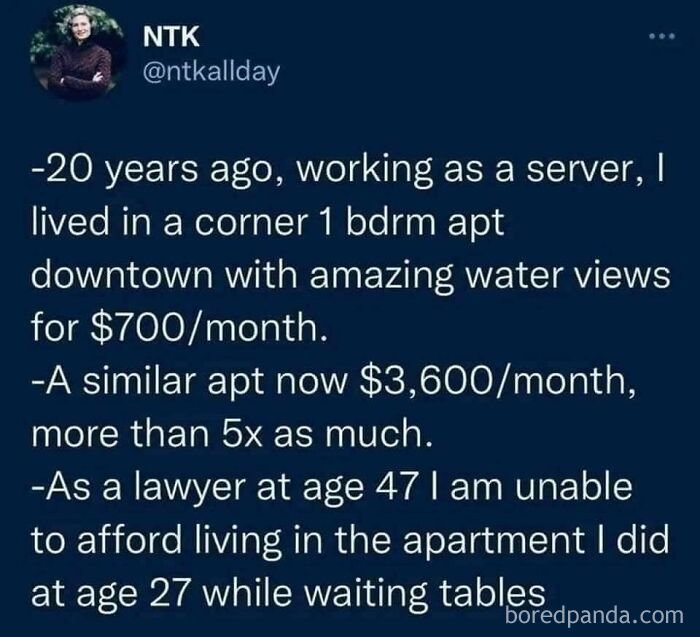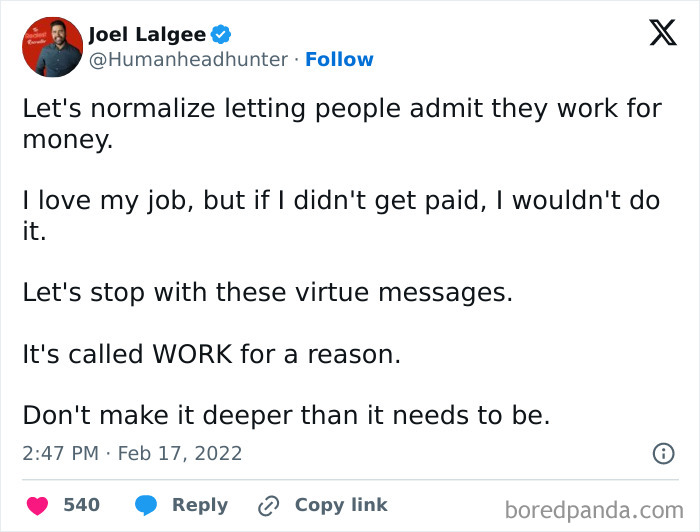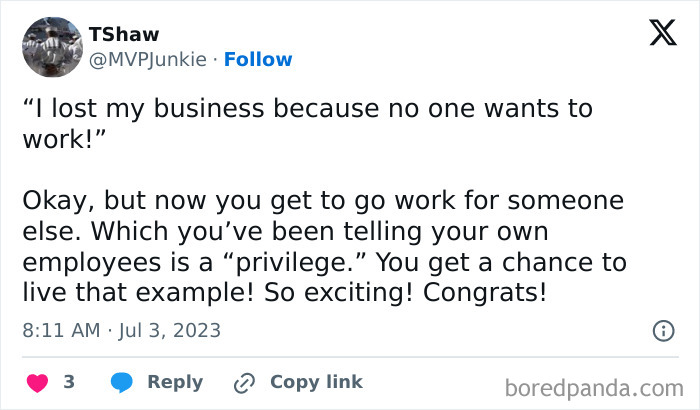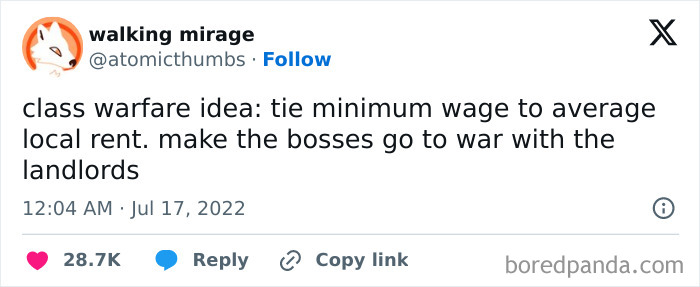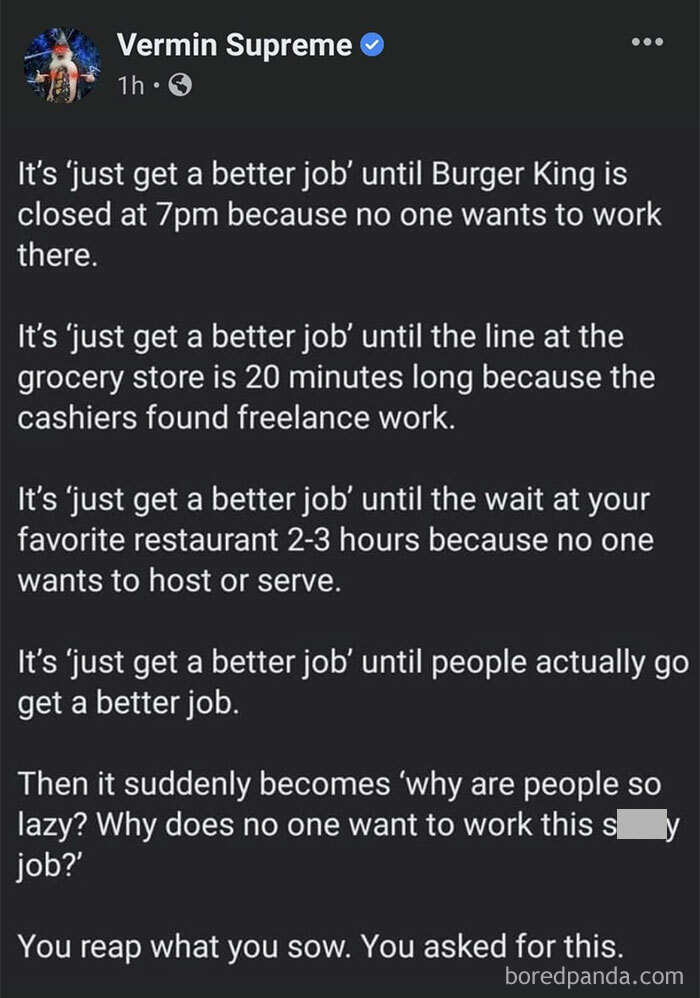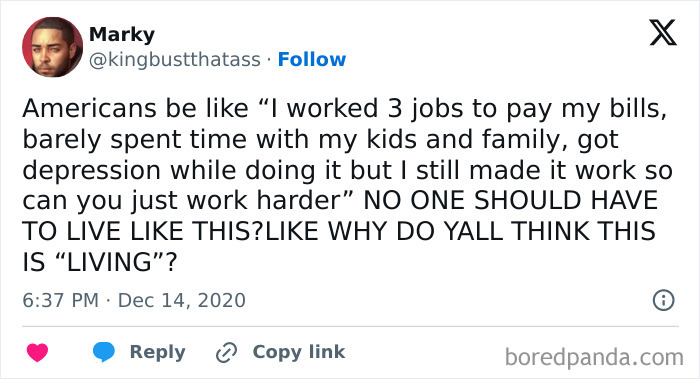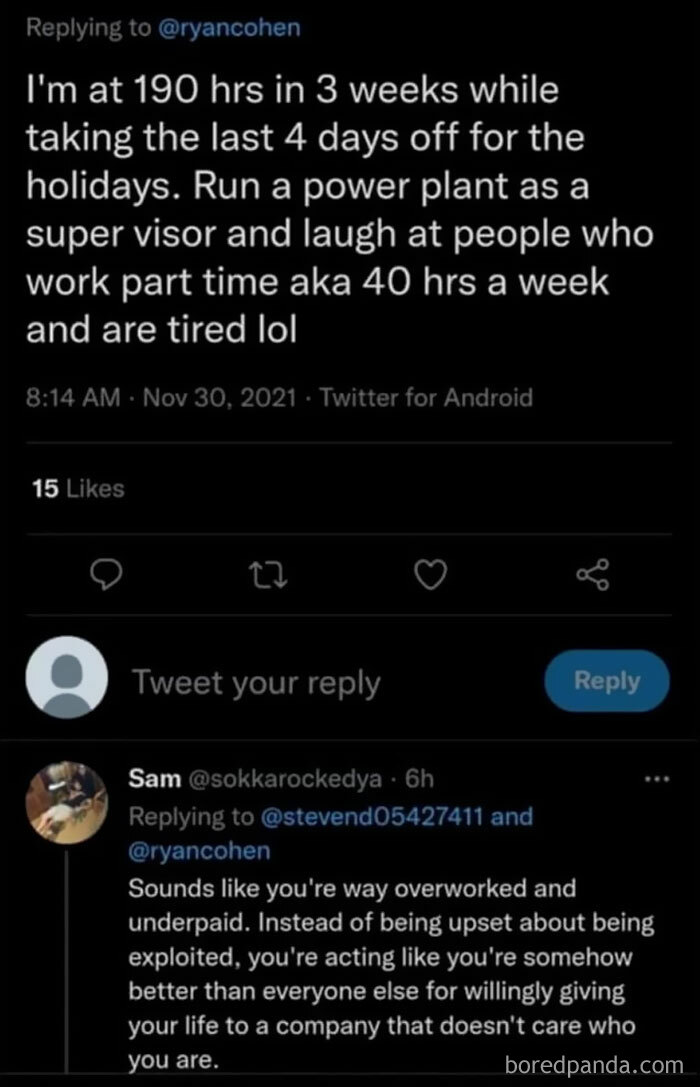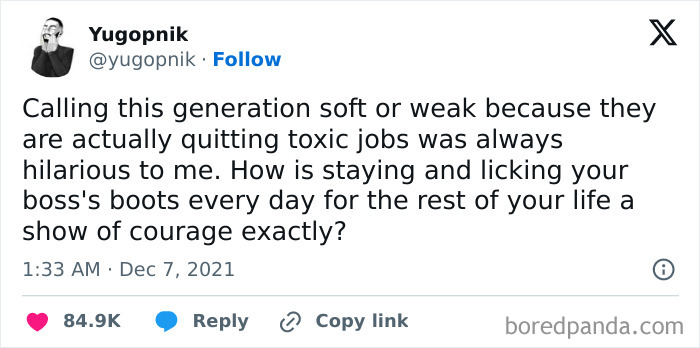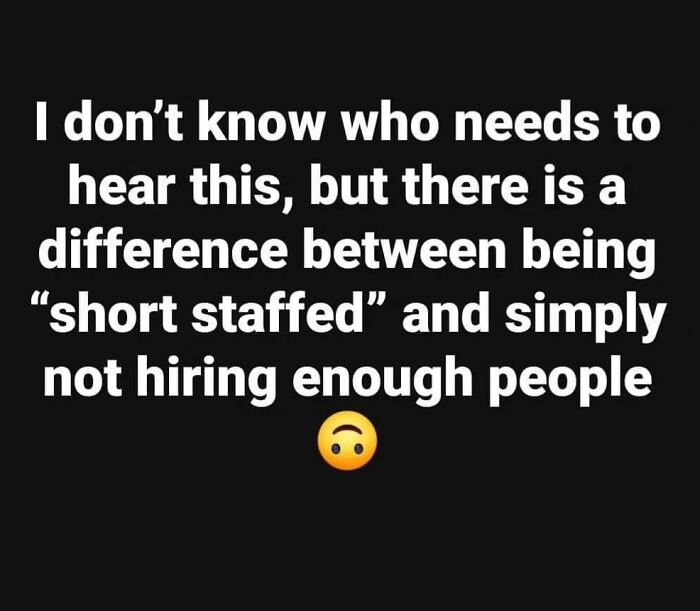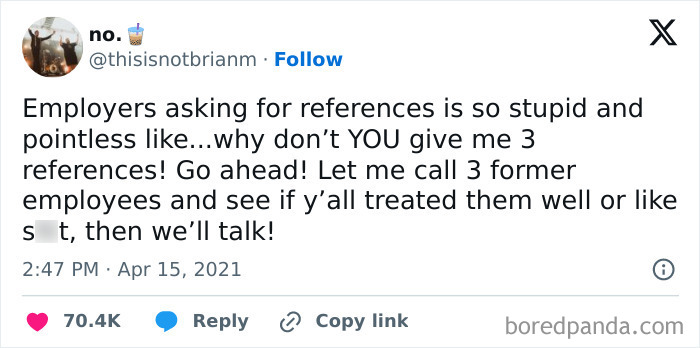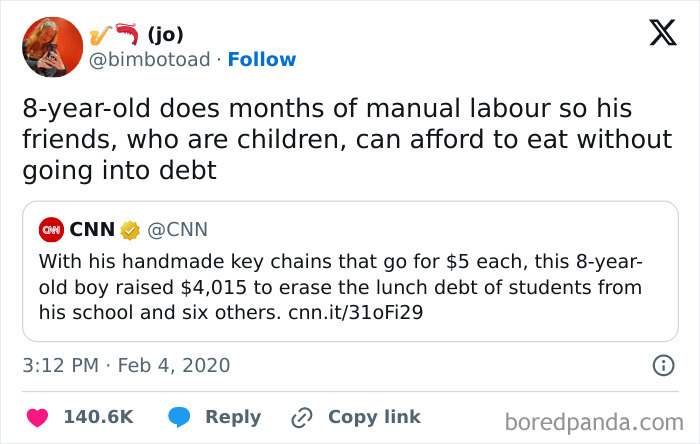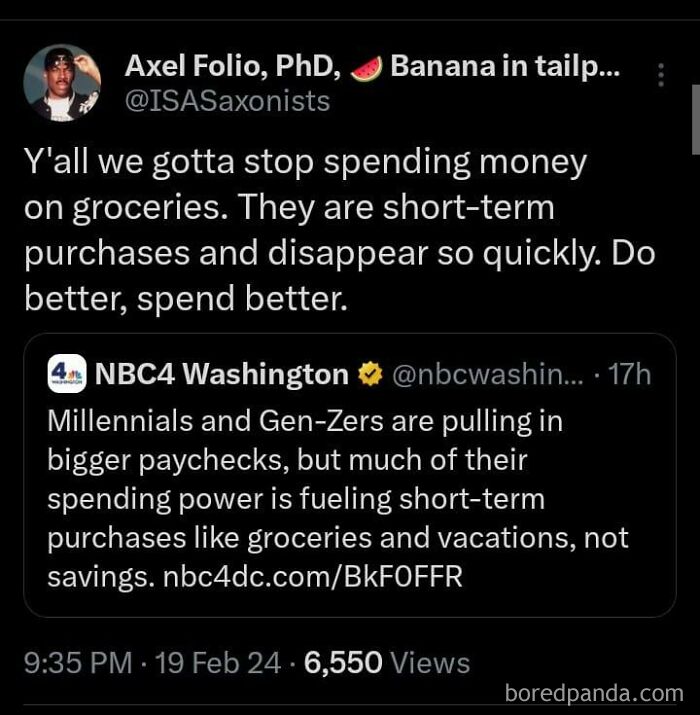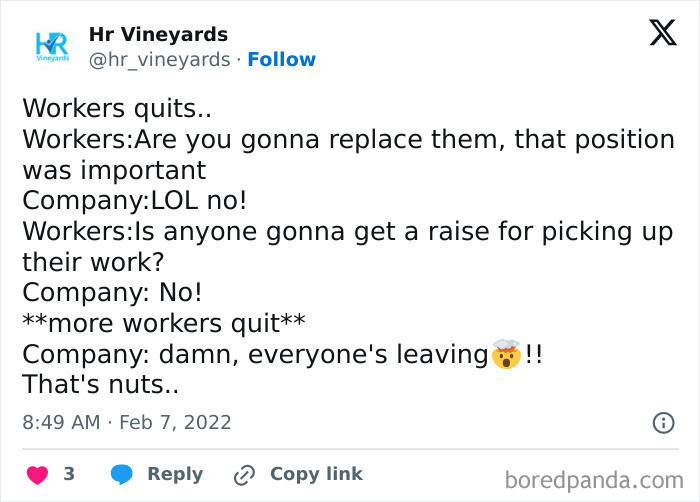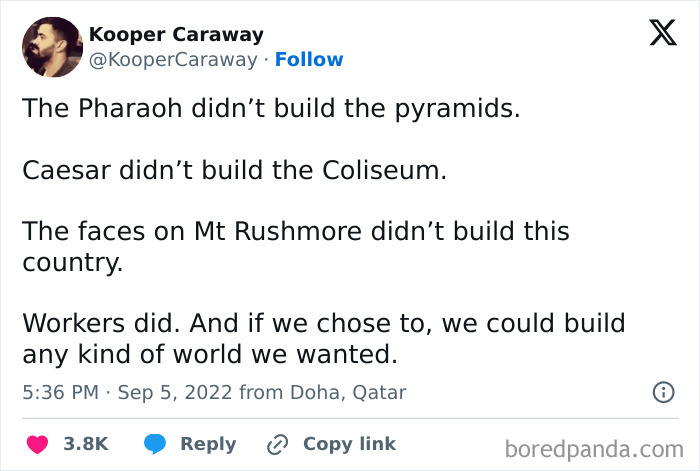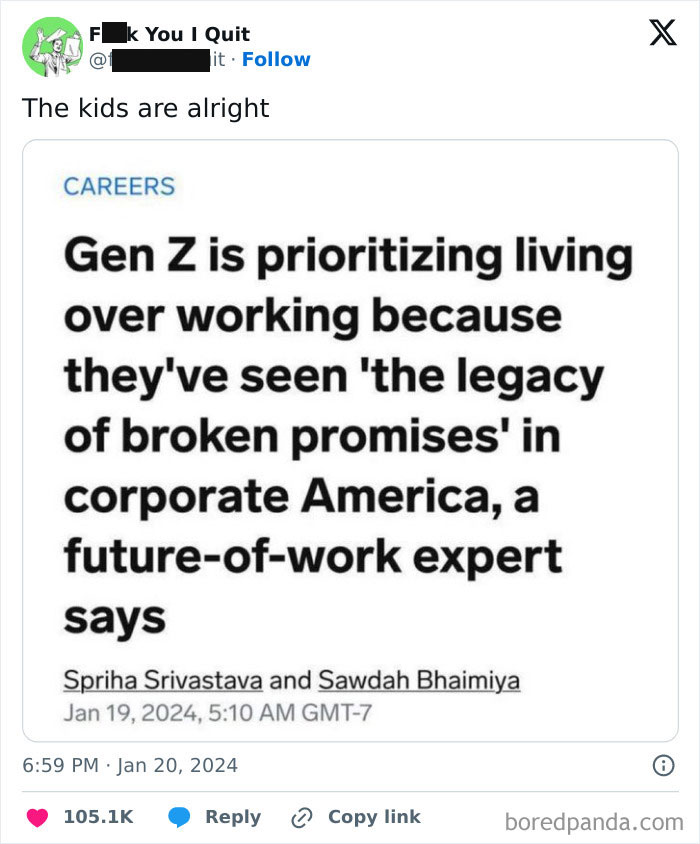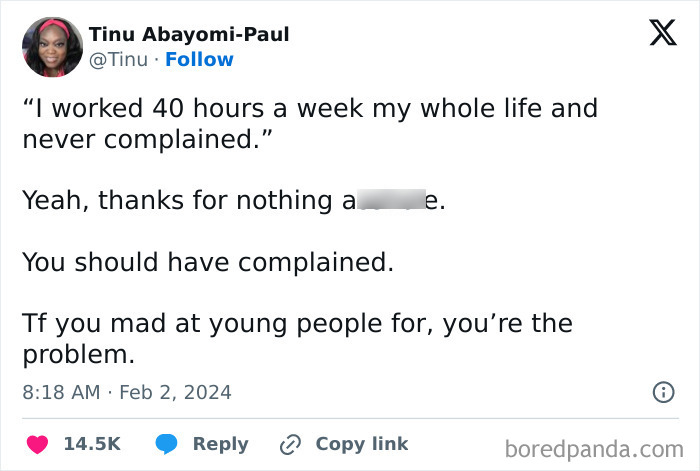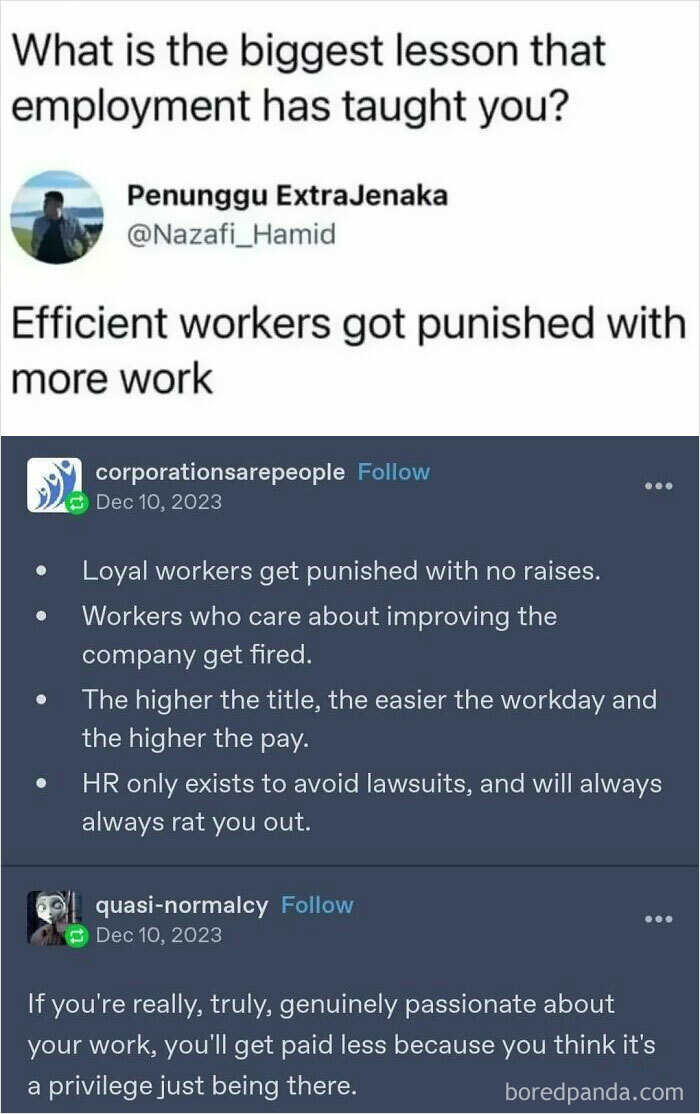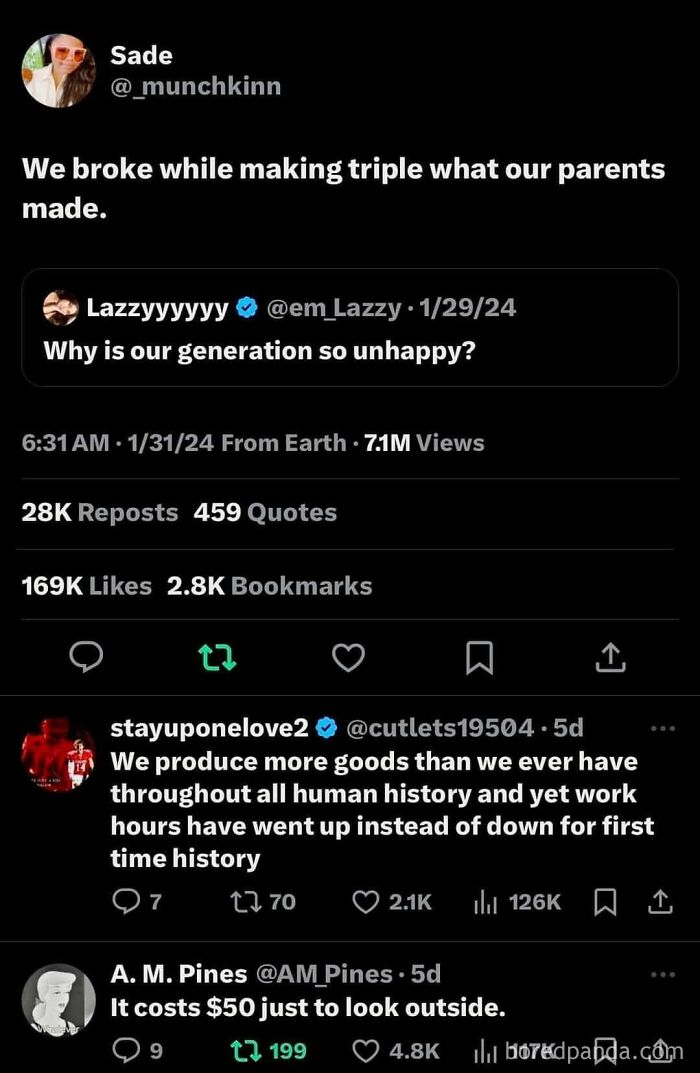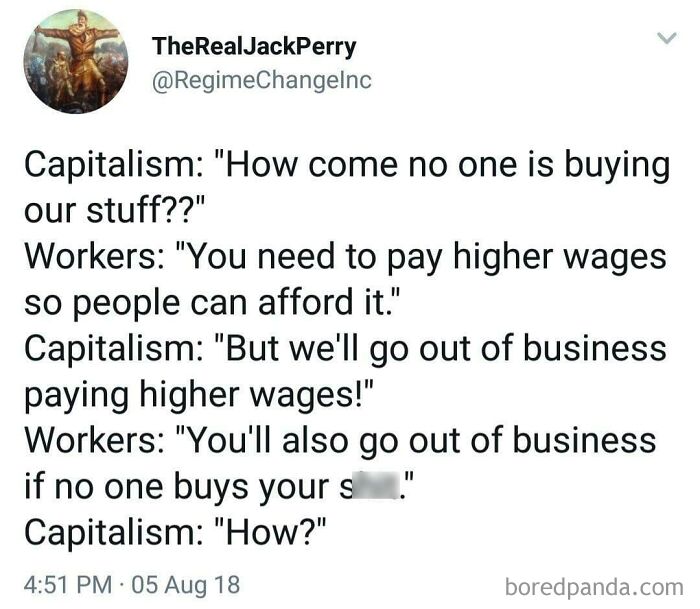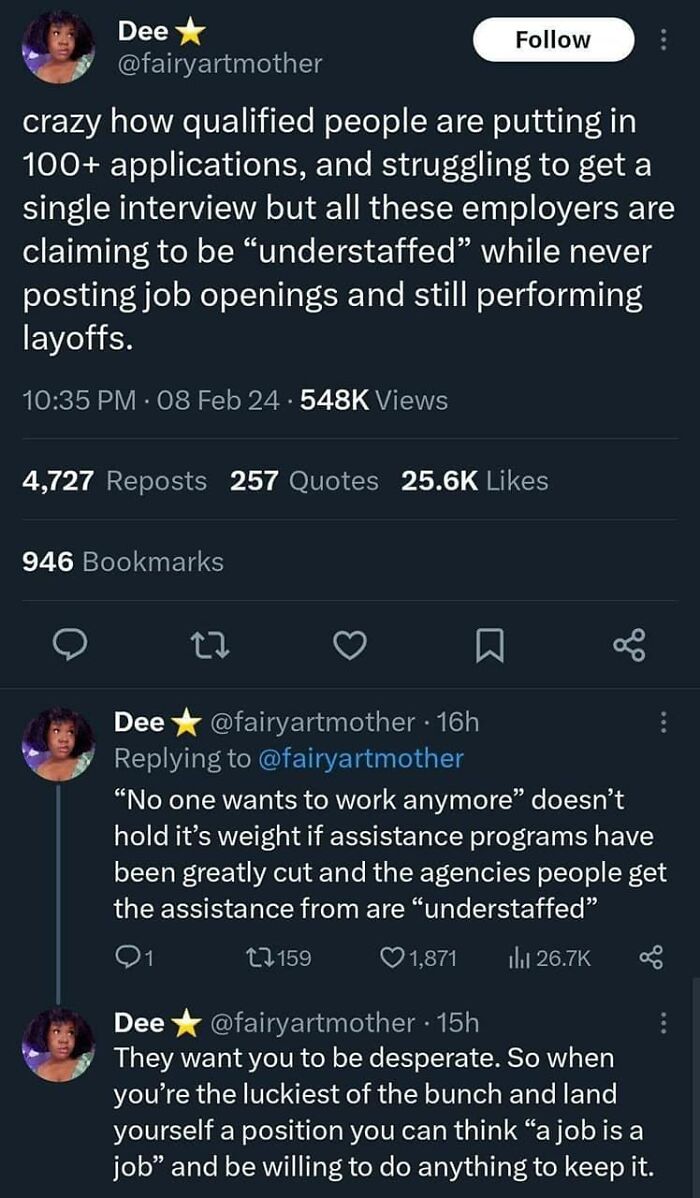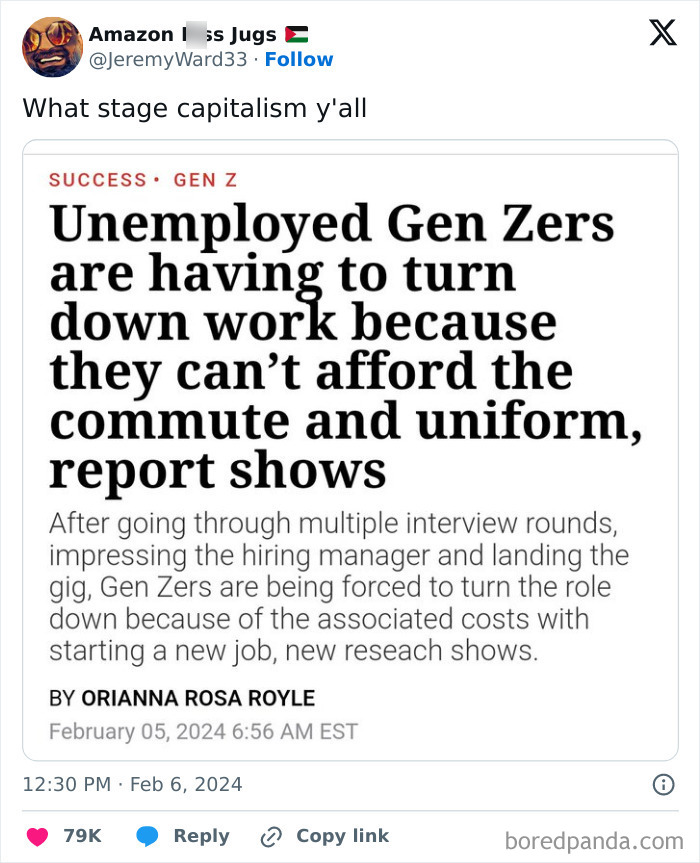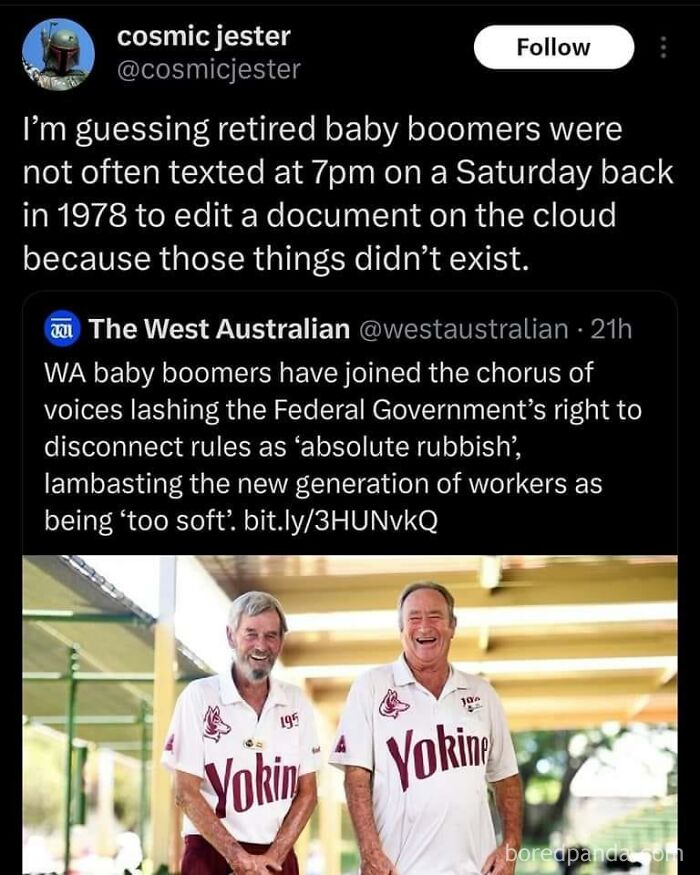The toxic environment is just one of the many reasons why arguably no one wants to work anymore. And while such a statement might not be exactly true, this Facebook group titled exactly that—”No One Wants To Work”—has plenty of examples in store, showing why that could easily become a reality. Scroll down to find some of them on the list below and see for yourself what can make people far less eager to go to work. Below you will also find insight shared by a psychotherapist, author, and mental health advocate, Allison Abrams, who was kind enough to answer a few of Bored Panda’s questions on employee well-being. That’s likely one of the reasons why employee stress levels have been sky high over the past few years. According to Gallup’s State of the Global Workplace: 2023 Report, it has been rising for over a decade already, but the situation got especially grim in 2020, likely because of the chaos caused by the pandemic. The report found that in 2022, nearly half of employed individuals participating in the survey felt stressed, making it the second year in a row with the number staying at record heights. Back in 2018, the jobsite Monster.com carried out a survey, which revealed that nearly four-in-five people have had a toxic boss, whether at that point or earlier. Needless to say, working under the wing of someone that makes their time at work a living hell is typically more than enough to send an employee out the door. “A healthy work-life balance is important now as it always has been and thankfully our society is beginning to understand that,” she told Bored Panda in a recent interview. “We still have a long way to go, especially in some industries, but at least the issue is being acknowledged and that’s always the first step.” According to Gallup’s report, together with actively disengaged employees, low engagement costs the global economy $8.8 trillion dollars. Moreover, it arguably does no favors for employee morale, either, as quiet quitters reportedly don’t foster supportive relationships with their fellow coworkers, their superiors, or the organization. “Since we have all lived through a global pandemic, for many of us, this has served as a reality check—a reminder of the brevity and preciousness of life,” Abrams told Bored Panda. “As is so often the case when this happens, we are encouraged to reevaluate our priorities and to ask ourselves what really matters in the larger scope of our lives. Grinding away in demanding jobs with unrealistically high expectations and little reward at the expense of our personal well-being and relationships is no longer acceptable.” “If you are unable to change the external conditions in the workplace, you are left with two choices: either leave or, if that’s not possible or ideal, change your mindset—come to an acceptance of the situation,” Abrams continued. “Easier said than done, but for anyone to psychologically survive difficult circumstances, how they frame things, as well as what their narrative of and attitude toward the situation is vital and can make all the difference for their mental and emotional well-being.” Follow Bored Panda on Google News! Follow us on Flipboard.com/@boredpanda! Please use high-res photos without watermarks Ooops! Your image is too large, maximum file size is 8 MB.



